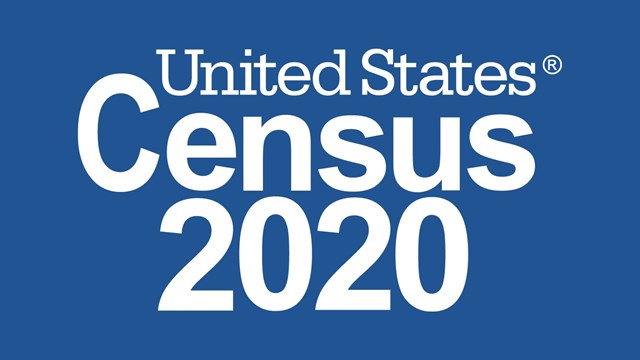Recently, have you noticed that your managing agent has exchanged his old Toyota for a new Mercedes? Has he installed a new addition to his house? Has he appeared erratic...and returning from jaunts to Atlantic City all the time? If so, it might be time to check the building’s books and records for suspicious activity and possible fraud. Either your manager just won the lottery and decided to keep his job...or these are signs of fraud.
Thankfully, there are fewer cases of co-op and condo fraud today than there were in bygone (but not so bygone) days, like in 1994, when 82 managing agents and four management firms were indicted in kickback investigations. Or in 1999, when 59 individuals and 21 management companies were indicted.
Still, even today, there are enough instances of fraud to keep busy forensic accountants, real estate attorneys, and district attorneys. Doubtlessly, gross mismanagement or fraud—when it happens to your corporation or association—is apt to wreak havoc with community finances.
Types of Fraud
Most cases of fraud or gross negligence involve mismanagement of the corporation’s cash. “The property management company might divert funds to pay for purposes not specific to the building or association they are managing,” notes Woody Goldstein, senior manager at Mayer CPAs in New York City. “In one example,” he says, “the management company was using the funds of the building to pay for the building and for their own expenses.”
Attorney Phyllis Weisberg, with the Manhattan-based law firm of Montgomery McCracken Walker & Rhoads, recalls a case in which a management company was supplying the board with copies of bank records that turned out to be entirely different than the actual records of the co-op on file at the bank. “They were running two sets of books,” she said. “Somebody is in jail on that one.”
Another scam involves the creation of a dummy vendor. Annette Murray, CPA, a shareholder with the accounting firm of Wilkin & Guttenplan, P.C. in Manhattan, says: “We've had a couple of instances over the years in which a property manager would set up a vendor repair company. The property manager would make up dummy invoices and then signoff that the work was done and get paid.”
The Lone Bandit
More frequently, fraud is perpetrated by a staff member than by the management company itself. “If an employee at a management company is not being monitored properly,” Murray explains, “it could set up a situation in which there is an opportunity for fraud. We've seen a situation where an employee with access to the accounting records of the building was transferring money back and forth between buildings. He was found out and discharged.”
“The motivation for someone perpetrating a fraud is very individual,” says Murray. “They could be feeding a drug, alcohol, or gambling problem. Some people are shopping. You never know what pressures are going on behind the scenes.”
“Also, sometimes they feel that they are not appreciated,” adds Murray. “They might say, ‘it's okay if I take this $5,000 on the side, or have this contractor do some work on my house, because I'm not being appreciated for the work that I'm doing.’”
In some cases, a board member is the guilty party. Goldstein recalls a recent case of a board member who was using the reserve fund as his personal bank account. “He made entries for bank transfers in the association records appear to be for association business, but on examination the accountant discovered,” says Goldstein, “it was all diverted to the board member's pocket. We were engaged in uncovering tens of thousands of dollars that had to be returned to the association.”
“In another case, the board president of a condo contracted a management company run by a close relative, at rates that were double the industry standard. That was a good way of diverting association funds to family members that they weren't entitled to,” says Goldstein.
How to Spot Financial Malfeasance
Red flags indicating possible fraud include:
• Large and unusual transactions in the monthly financial statements
• Missing or altered financial records
• Unexplained deposits to, and withdrawals from, the reserve fund
• Monthly reports coming in late or with errors
• Duplicate payment to vendors, or payments to vendors the board does not recognize
• Large, unexplained discrepancies between the budget and actual expenses
• Reports from vendors or creditors that bills are being paid late
• Significant fluctuations in amounts paid for regularly recurring expenses
Steps to Take if Fraud is Discovered
If you suspect gross mismanagement of corporation funds or crime afoot, call an attorney immediately. They will help guide you through the steps to take.
“Every case of financial malfeasance is different and demands its own protocol, but in most cases a good first step is to close your bank account and open another one without including the managing agent as signatory. You want to stop the loss,” advises Weisberg.
At the same time, a forensic accountant should be summoned to investigate the extent and cause of the damage. In consultation with the attorney, they will recommend how to approach all parties involved.
If a number of board members suspect another board member of wrongdoing, they should meet with the building’s professionals offsite, without the alleged perpetrator present. If there is concern about the managing agent or someone else on staff, the attorney should contact the owners of the management company. If the management company is suspect, the attorney might need a court order to force the release of original bank records.
Create a Paper Trail
“Meanwhile,” says Goldstein, “you need to create a paper trail. Document the items that you are concerned with. Gather the information and data promptly so we can commence the forensic examination in a timely manner and help retrieve the assets that were stolen.”
“The forensic accountant will want to see bank reconciliations, bank statements, canceled checks, and paid bills. We would want to get complete access to the co-ops books and records,” says Goldstein. “Look at bank transfers and authorizations, and review all of their contracts.”
Goldstein recalls a forensic audit for a community on Long Island that discovered a $30,000 bill for air-conditioning compressors. “Some digging revealed that the community paid for three compressors at $10,000 each, but took delivery of only two. The third one went to the business of the property manager,” he says.
The audit will reveal whether the damage done to the corporation’s or association’s finances is the result of gross negligence (the inadvertent misallocation of a bill to the wrong building in a management company’s portfolio), or fraud (the intentional misuse of the assets of the property).
An attorney will make the determination as to whether the situation could be considered a crime to which the police or district attorney should be reported. If there is suspicion of fraud and the co-op has fidelity or crime insurance (which it should), reporting the incident is essential. “Some insurance companies require that you actually report the crime to the district attorney or police department,’’ according to Weisberg. “You have to have a case number in order to be reimbursed by your insurance carrier.’’
“The District Attorney's office will decide whether or not to present the case to a grand jury and then prosecute. Fraud affecting co-ops and condos are state crimes except in rare cases. It could rise to a federal crime if it involves using the mail, for example,” explains Weisberg.
Nip it in the Bud
By diligently following the best business practices recommended by accountants and attorneys, the board can reduce significantly the chances of the corporation becoming victim of gross negligence or fraud.
While some are better than others at reading statements, all board members should review the financials and ask questions about anything they don’t understand. Look for any expenses in excess of the budget, payments to vendors that were not approved, and unauthorized transfers out of the bank account.
“A really big deterrent to theft and fraud is the knowledge that somebody else is going to be looking at your work,” says Weisberg.
Both the operating and reserve bank accounts should be reconciled monthly. “If the board wants to take it to another level, they can request that they receive copies of the bank statements directly from the bank,’’ says Murray. “We’ve seen instances in which the board was supplied with bank reconciliations and statements that were completely fabricated.’’
The board should have the on-site property manager or management company provide a balance sheet that lists all checks written during the month, cash receipts, copies of invoices, and a report that shows a schedule of who owes the building money, and to whom the building owes money.
“To maintain tight control over monthly collections, the best practice is to engage a lockbox system,’’ says Goldstein. “The checks that are paid for the monthly maintenance go to a P.O. Box that a bank has control over and they go directly into the funds of the account of the association.’’
Reserve funds and operating funds should have separate bank accounts. Ideally, every check issued from the reserve accounts should require the signatures of two board members. If the board leaves it to management to sign operating checks, they should at least require checks above a certain amount be co-signed by a board member. In any case, make sure a board member is signatory on the account so the board has instant access to the actual bank records and will be allowed to close the account.
To prevent conflicts of interest when contractors are hired, the property should get multiple bids on all major contracts. Any relation should be disclosed if one exists between a contractor and a manager or board member. The requests for proposals from contractors should be detailed in order to make fair comparison with the estimates.
“Ideally, the bids for major contracts should be sealed,’’ advises Murray, “and you want to have the board open them to minimize the chance of anybody, whether a manager or member of the board, possibly talking to any of the contractors and giving them a heads-up on what the price might be. You don't want any bid fixing.’’
“The bottom line,’’ says Goldstein, “is that financial management is the most important fiduciary duty a board member has. Everyone on the board should take a proactive role in reviewing the financials on a monthly basis, not leave it to the treasurer or the property manager alone. The board members are all responsible for safeguarding the assets of the building.’’
Steve Cutler is a freelance writer and a frequent contributor to The Cooperator.







3 Comments
Leave a Comment